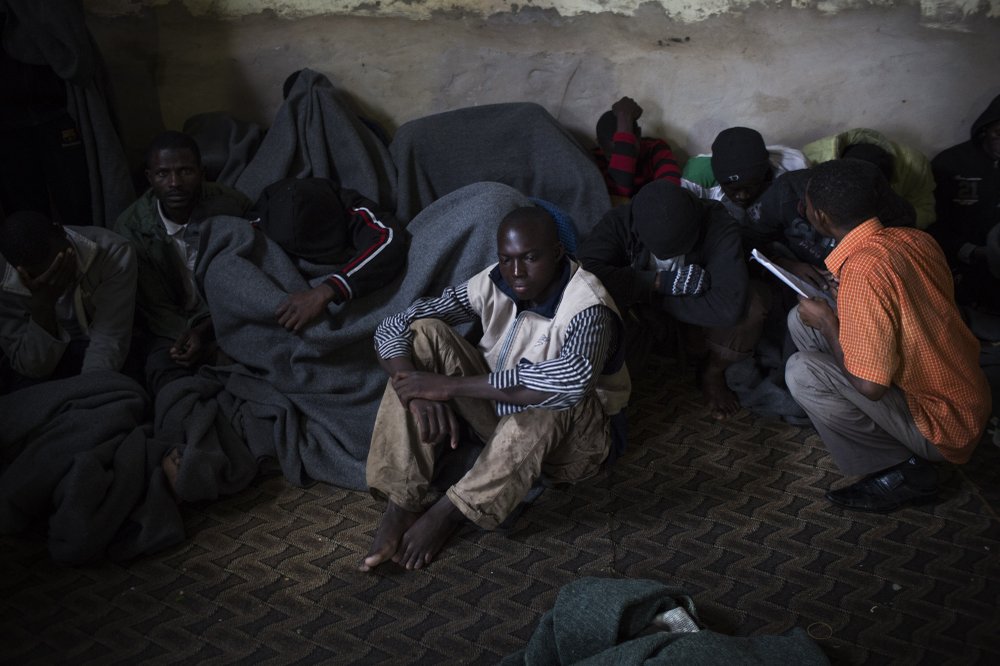The US State Department released Monday its 10th annual Trafficking in Persons Report. The report puts Egypt in the second of three categories of countries in terms of efforts made to combat human trafficking.
Egypt is a source, transit, and destination country for women and children subjected to trafficking for forced labor and prostitution, according to the report.
Street children in Egypt are estimated to number from between 200,000 to one million, and are liable to exploitation for both prostitution and forced begging, with the involvement of local gangs.
Egyptian children may be recruited for domestic and agricultural labor and some face conditions equivalent to involuntary servitude, including restrictions on movement, non-payment of wages, threats, and physical or sexual abuse, the report found.
Wealthy men from the Gulf reportedly travel to Egypt to purchase “temporary” or “summer marriages” with Egyptian females, including girls under the age of 18. These arrangements, often facilitated by the parents and through marriage brokers, are a form of commercial sexual exploitation of children which happens in Cairo, Alexandria and Luxor, according to the report.
Egypt is also deemed a transit country for women trafficked from Uzbekistan, Moldova, Ukraine, Russia, and other Eastern European countries to Israel for commercial sexual exploitation, with organized criminal groups involved in such movements.
Men and women from South and Southeast Asia, the report says, may fall victim to forced labor in Egypt. The report notes that during the year surveyed, the management of one factory in Egypt’s Qualified Industrial Zone retained workers’ passports–a possible indication of forced labor, as employers can then use the domestic workers’ illegal status and lack of employment contract as a coercive tool.
Ethiopians, Eritreans, Sudanese, Indonesians, Filipinos, and some Sri Lankan females migrate voluntarily to Egypt but may be forced into domestic work. Some are reportedly coerced by their families and gangs to work as prostitutes in Cairo’s night clubs.
NGO and media reports cited indicate that some Egyptians are forced to work in Jordan where their passports are withheld and they work long hours, often without pay, and with restrictions on their movement.
“The Government of Egypt does not fully comply with the minimum standards for the elimination of trafficking; however, it is making significant efforts to do so,” says the report, referring to newly-enacted legislation that criminalizes trafficking, with fines ranging from US$9,000 to US$36,000, “commensurate with penalties prescribed for other serious offenses, such as rape.”
Amendments made in 2008 to the Child Law helped raise awareness of “summer marriages,” with one positive outcome being the arrest of 27 marriage registrars who registered the commercial marriage of underage girls.
However, the Egyptian government has not made overall adequate efforts to investigate, prosecute, and convict labor trafficking offenders, and has not made progress in protecting the victims of trafficking over the period surveyed, says the report.
The government continued to lack formal victim identification procedures and protection services. Unidentified victims of trafficking, including many street children and women arrested for prostitution, were often treated as criminals rather than victims.
Despite receiving training, government officials did not employ formal procedures to identify victims of trafficking and refer them to providers of care.
The US Department of State has recommended that Egypt increase law enforcement, apply victim identification procedures in order to offer protective services to victims and ensure they are not penalized, implement a comprehensive public information campaign, assess potential forced labor among migrant workers in Egyptian factories, and improve the coordination of government anti-trafficking efforts.



